- News
- Reviews
- Bikes
- Accessories
- Accessories - misc
- Computer mounts
- Bags
- Bar ends
- Bike bags & cases
- Bottle cages
- Bottles
- Cameras
- Car racks
- Child seats
- Computers
- Glasses
- GPS units
- Helmets
- Lights - front
- Lights - rear
- Lights - sets
- Locks
- Mirrors
- Mudguards
- Racks
- Pumps & CO2 inflators
- Puncture kits
- Reflectives
- Smart watches
- Stands and racks
- Trailers
- Clothing
- Components
- Bar tape & grips
- Bottom brackets
- Brake & gear cables
- Brake & STI levers
- Brake pads & spares
- Brakes
- Cassettes & freewheels
- Chains
- Chainsets & chainrings
- Derailleurs - front
- Derailleurs - rear
- Forks
- Gear levers & shifters
- Groupsets
- Handlebars & extensions
- Headsets
- Hubs
- Inner tubes
- Pedals
- Quick releases & skewers
- Saddles
- Seatposts
- Stems
- Wheels
- Tyres
- Health, fitness and nutrition
- Tools and workshop
- Miscellaneous
- Cross country mountain bikes
- Tubeless valves
- Buyers Guides
- Features
- Forum
- Recommends
- Podcast
review
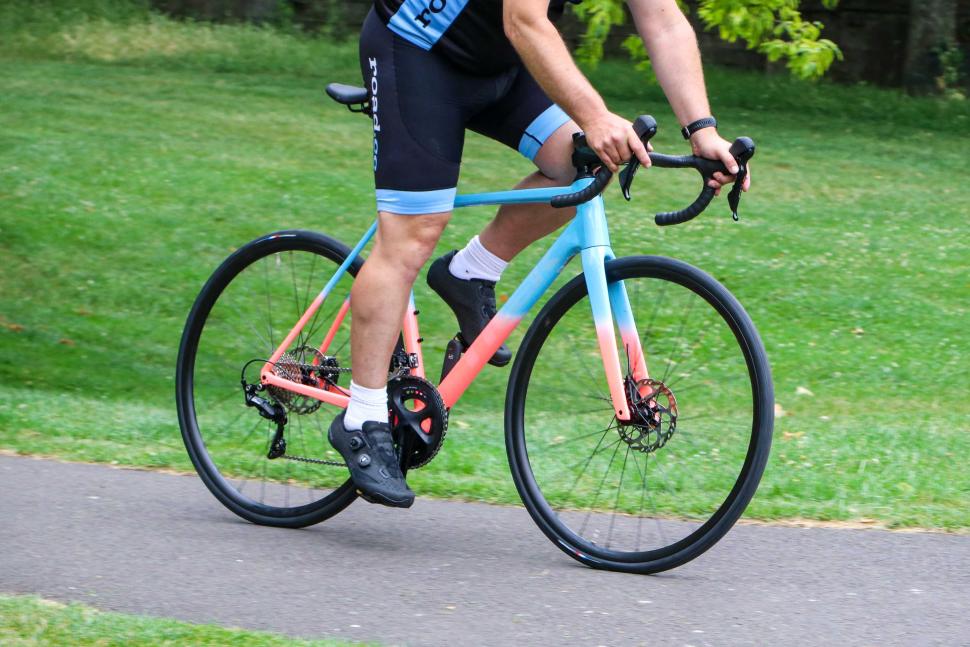 Trek Emonda ALR 5
Trek Emonda ALR 5£2,325.00
VERDICT:
The tyres hold it back a bit, but underneath is a comfortable alloy road bike with a great performance
Excellent ride feel
Smooth and clean look
Geometry is a good balance between aero and comfort
Not the lightest build
Deserves better wheels & tyres
Weight:
9,080g
Contact:
At road.cc every product is thoroughly tested for as long as it takes to get a proper insight into how well it works. Our reviewers are experienced cyclists that we trust to be objective. While we strive to ensure that opinions expressed are backed up by facts, reviews are by their nature an informed opinion, not a definitive verdict. We don't intentionally try to break anything (except locks) but we do try to look for weak points in any design. The overall score is not just an average of the other scores: it reflects both a product's function and value – with value determined by how a product compares with items of similar spec, quality, and price.
What the road.cc scores meanGood scores are more common than bad, because fortunately good products are more common than bad.
- Exceptional
- Excellent
- Very Good
- Good
- Quite good
- Average
- Not so good
- Poor
- Bad
- Appalling
The Trek Emonda ALR 5 uses the latest aluminium alloy Emonda frameset, with aero tweaks and a geometry that matches other high-end performance bikes in Trek’s line-up. It showcases the fact that this material still has a place on the racing scene, offering up the sort of stiffness and ride comfort found with carbon, although this build is far from light.
> Buy now: Trek Emonda ALR 5 for £1,999.99 from Triton Cycles
For more options and for different budgets, check out our guide to the best road bikes, from £300 to over £13,000…
Ride
I'm a big fan of aluminium frames. When done well, using the right tubing and wall thicknesses, and with well-thought-out geometry, it can result in a bike with excellent ride feel and great levels of feedback – everything a fast rider or racer wants. Trek has done an excellent job with this new Emonda ALR, which ticks all those boxes.
Even with the 25mm tyres pumped up firm, the aluminum tubing shows no signs of harshness, with an almost steel-like ride feel to it; there is a certain smoothness to it.
The frame is still incredibly stiff. Hard efforts out of the saddle don't show any signs of flex around the bottom bracket area, or anywhere else you might not want it. On the whole, it feels responsive and eager to get a shift on when you ask it to.
The only real fly in the ointment is the slightly lacklustre wheelset and the weighty tyres fitted as standard. Both take the overall shine off the performance, and contribute to the all-up bike weight of 9.1kg on our scales, so it's not exactly nippy off the line compared with bikes a kilo lighter.
Swapping the Bontrager tyres out for some Goodyear Eagle F1 Supersport Rs that were in for review dropped 320g from the overall weight, and helped to show just what this bike is capable of. Not just in terms of weight, either, but also better rolling resistance and grip.
The better grip lets you get the best out of the geometry, which is designed to be on the racy side without being overly aggressive. It's a nice balance.
On fast descents you can fling it into the corners and it'll hold its line without feeling twitchy or nervous. In fact, it feels pretty planted, but not at the cost of responsiveness or nimbleness thanks to the sub-metre wheelbase.
It's a confidence-boosting bike, easy to ride even if you aren't giving things your full attention. You don't have to be 'on it' the whole time to ride the Emonda quickly; it'll just as easily let you cover big miles without issue.
Though the ALR has kammtail tube sections, and Trek makes some aero claims, I wouldn't say it feels exceptionally quick in a straight line; it doesn't have the sort of wind-cheating properties of properly aero carbon bikes.
That said, thanks to the riding position that's achievable given the reasonably low stack height, you can certainly get a shift on if you are trying to get out of the wind. It's certainly a bike you can race on, or just ride quickly without any competition involved.
Frame and fork
Trek uses its own range of aluminium grade tubing, which in the ALR 5's case is "ultralight 300 Series Alpha". And thanks to the hydroformed shapes, and what Trek calls invisible weld technology, it looks very much as smooth and shapely as many carbon frames on the market, especially around the head tube area.
That smoothness is enhanced by the integrated cable routing, directed in through the head tube and headset before passing into the frame and exiting just below the bottom bracket.
The welding only has a smooth appearance around the front area and the top of the seat tube, though; move further down where there are bigger loads being applied, such as at the bottom bracket, and the welds are much more pronounced.
The rear of the frame actually has quite a traditional look about it, with mainly round tubes and seatstays that aren't overly narrow or heavily profiled, like you might find manufactured from carbon.
You won't find any integrated seatclamps either, with the Emonda getting a round post and a clamp that sits externally.
As for finishing touches, it's just bolts for two bottle cage mounts and nothing else. This is a performance race bike after all.
Tyre clearance is quite limited for a modern road bike at just 28mm. That's not a huge problem for me – 28mm is the maximum I use for this kind of bike – but with many of the opposition being able to take 30mm or even 32mm now, it's a little bit on the back foot.
The carbon fork, an Emonda SL, blends smoothly into the frame and provides all the stiffness required for hard cornering without suffering from any kind of understeer at all.
For the bottom bracket Trek has specced a T47, a switch it made a little while back. In a nutshell, it uses the larger dimensions of a press-fit system, but the bearings are threaded into the frame rather than being pressed. This provides the stiffness and performance benefits of a press-fit system without the creaking issues that can result if dirt gets in between the cups and frame due to poor manufacturing tolerances.
Geometry-wise, the Emonda ALR 5 uses Trek's H1.5 Race measurements, a balance of angles and dimensions that give the bike a performance edge without going too far into the twitchy, hard-to-handle realm of race bikes. It's the same as used on the higher-end carbon Emonda models.
As for actual figures, the Emonda ALR 5 comes in eight sizes, which is actually very impressive. They cover from 47cm right the way up to 62cm, with top tube lengths of 51.2cm to 59.8cm.
Our 56cm has a top tube of 55.9cm, a head tube of 15.1cm, and a seat tube length of 52.5cm.
The wheelbase is 983mm with 410mm chainstays, while the bottom bracket drop is 70mm. The fork offset is 45mm.
The head angle is 73.5 degrees, and the seat is similar at 73.3 degrees. Stack and reach figures are 563mm and 391mm respectively.
Groupset
This model has a mechanical Shimano 105 groupset which we have reviewed fully. We've also reviewed the hydraulic shifter/brake levers, if you want to know more.
Even though Shimano is 'charging' ahead with its electronic groupsets, and we've seen 105 Di2 become 12-speed, there is still a lot of life left in this mechanical setup. The shifting is great, with crisp and clean gear changes, and the shape of the levers lets your hands sit naturally and comfortably.
In terms of ratios, the ALR 5 comes with a 50/34-tooth compact chainset mated to an 11-30 cassette. That's a good spread of gears for all kinds of performance riding, with a 50x11 giving more top end than most people need, along with plenty of climbing gears at the lower end, providing you are reasonably strong and fit.
The hydraulic braking performance is top notch too. With 160mm rotors front and rear, you can get it to pull up from high speed to zero with just two fingers whenever you want.
Finishing kit
Trek's in-house component and accessories brand, Bontrager, supplies all of the finishing kit found on the ALR.
The handlebar and stem are both standard alloy components with nothing flash when it comes to their design, but they do the job just fine.
The Comp VR-C bar has a 124mm drop, which is shallow enough that it can be used without the bend in your back needing to be too extreme. The overall width is matched to the frame size.
The seatpost is alloy too, 6061 grade, and is 27.2mm in diameter. It comes with 8mm of offset and on this size bike it is 330mm in length.
The Verse Comp saddle is a little too plush for my liking; I prefer something with less padding for fast riding, but saddles are very much a personal choice. You might get on with it just fine.
Wheels & tyres
As for the wheels, the Paradigm SLs are tubeless ready, and for a wheelset on a bike at this price point they aren't too bad in terms of weight at a claimed 1,800g.
Their shallow rim depth doesn't bring a huge amount of speed to the party, but they are stiff enough for spirited riding, and durability doesn't look to be an issue.
As I've already mentioned, the tyres fitted aren't the best from a performance point of view. They are heavy at over 800g a pair, and with a limited thread count they have quite a 'dead' feeling to them.
Durability and reliability aren't an issue, so they are good training tyres, but they just hamper performance. An upgrade here will bring dividends to overall speed, with better rolling resistance and grip.
Value
The ALR 5 is priced at £2,350, which is similar to Cannondale's highly regarded CAAD 13: an aluminium road bike with a lot of pedigree. (Mat tested the CAAD13 Disc 105 in 2020.)
The latest model is similarly specced with a 105 groupset and alloy mid-depth rims, so it's no surprise to see a price virtually the same either: £2,300.
Specialized's alloy superbike, the Allez Sprint Comp, takes many cues from the carbon fibre Tarmac SL7. Liam was impressed with it overall when he tested it last year, and Jamie has bought a frameset, which you can see in our YouTube video comparing it against the ALR 5. It's much higher priced than the Trek, though, at £2,900, with a 105 groupset and DT Swiss wheels.
Merida has a range of aluminium Sculturas, with the 400 being the most expensive. It too comes with a 105 mechanical groupset and an alloy wheelset, but costs much less at £1,775.
Conclusion
The ride quality and geometry of the ALR 5 makes it a bike I'd highly recommend if you want to race but don't have a massive budget, or you just want a bike you can ride fast without getting beaten up, even on long rides. It's priced in line with key competition like the CAAD13 and is cheaper than the Allez Sprint Comp by quite a long way. Some might baulk at that price for an alloy bike, but there is no denying it has the characteristics to back it up.
Verdict
The tyres hold it back a bit, but underneath is a comfortable alloy road bike with a great performance
road.cc test report
Make and model: Trek Émonda ALR 5
Size tested: 56cm
About the bike
List the components used to build up the bike.
Wheels -
Hub front Bontrager alloy, sealed bearing, CenterLock disc, 100x12 mm thru axle
Skewer front Bontrager Switch thru-axle, removable lever
Hub rear Bontrager alloy, sealed bearing, CenterLock disc, Shimano 11-speed freehub, 142x12 mm thru axle
Skewer rear Bontrager Switch thru-axle, removable lever
Rim Bontrager Paradigm SL, Tubeless Ready, 24-hole, 21 mm width, Presta valve
Tyre Bontrager R1 Hard-Case Lite, wire bead, 60 tpi, 700x 25 c
Max tyre size 28c
Drivetrain -
Shifter Shimano 105 R7020, 11-speed
Front derailleur Shimano 105 R7000, braze-on
Rear derailleur Shimano 105 R7000, short cage, 30T max cog
*Crank Size: 47
Shimano 105 R7000, 50/34 (compact), 165 mm length
Size: 50, 52
Shimano 105 R7000, 50/34 (compact), 170 mm length
Size: 54, 56, 58
Shimano 105 R7000, 50/34 (compact), 172.5 mm length
Size: 60, 62
Shimano 105 R7000, 50/34 (compact), 175 mm length
Bottom bracket Praxis, T47 threaded, internal bearing
Cassette Shimano 105 R7000, 11-30, 11 speed
Chain Shimano 105 HG601, 11-speed
Max. chainring size 1x: 48T, 2x: 53/39 (Shimano), 48/35 (SRAM)
Components
*Saddle Size: 47, 50, 52
Bontrager Verse Comp, steel rails, 155 mm width
Size: 54, 56, 58, 60, 62
Bontrager Verse Comp, steel rails, 145 mm width
*Seatpost Size: 47
Bontrager Comp, 6061 alloy, 27.2 mm, 8 mm offset, 250 mm length
Size: 50, 52, 54, 56, 58, 60, 62
Bontrager Comp, 6061 alloy, 27.2 mm, 8 mm offset, 330 mm length
*Handlebar Size: 47, 50
Bontrager Comp VR-C, alloy, 31.8 mm, 100 mm reach, 124 mm drop, 38 cm width
Size: 52
Bontrager Comp VR-C, alloy, 31.8 mm, 100 mm reach, 124 mm drop, 40 cm width
Size: 54, 56, 58
Bontrager Comp VR-C, alloy, 31.8 mm, 100 mm reach, 124 mm drop, 42 cm width
Size: 60, 62
Bontrager Comp VR-C, alloy, 31.8 mm, 100 mm reach, 124 mm drop, 44 cm width
Handlebar tape Bontrager Supertack Perf tape
*Stem Size: 47
Bontrager Elite, 31.8 mm, Blendr-compatible, 7-degree, 70 mm length
Size: 50
Bontrager Elite, 31.8 mm, Blendr-compatible, 7-degree, 80 mm length
Size: 52, 54
Bontrager Elite, 31.8 mm, Blendr-compatible, 7-degree, 90 mm length
Size: 56, 58
Bontrager Elite, 31.8 mm, Blendr-compatible, 7-degree, 100 mm length
Size: 60, 62
Bontrager Elite, 31.8 mm, Blendr-compatible, 7-degree, 110 mm length
Brake Shimano 105 hydraulic disc
Brake rotor Shimano RT70, CentreLock, 160 mm
Rotor size Max brake rotor sizes: 160mm front & rear
Tell us what the bike is for and who it's aimed at. What do the manufacturers say about it? How does that compare to your own feelings about the bike?
Trek says, "The Émonda ALR 5 gives you the sleek looks of carbon without the sticker shock. Its advanced alloy frame is built to perform, and pairs with disc brakes and a reliable Shimano 105 drivetrain to give it the race-ready edge."
It's a smooth looking bike with an excellent ride quality, and plenty of stiffness.
Where does this model sit in the range? Tell us briefly about the cheaper options and the more expensive options
The range is topped with the ALR 6 at £3,150 and starts with the ALR 4 at £1,750. A frameset is available too, from £1,150.
Frame and fork
Overall rating for frame and fork
8/10
Tell us about the build quality and finish of the frame and fork?
It's a high-quality aluminium frame that looks smooth, just like a carbon fibre offering, and the fork is stiff enough for hard riding.
Tell us about the materials used in the frame and fork?
The frame is made from Trek's 300 Series Alpha aluminium while the fork is full carbon fibre.
Tell us about the geometry of the frame and fork?
The geometry is on the racy side, but just backed off enough to not create a twitchy speed machine.
How was the bike in terms of height and reach? How did it compare to other bikes of the same stated size?
The height and reach figures are fairly typical for a race bike of this size.
Riding the bike
Was the bike comfortable to ride? Tell us how you felt about the ride quality.
Yes, the alloy frame has a great ride quality.
Did the bike feel stiff in the right places? Did any part of the bike feel too stiff or too flexible?
With the oversized bottom bracket shell, and stiff tubing where it needs to be, all is fine in this respect.
How did the bike transfer power? Did it feel efficient?
Power transfer is good throughout the frame and fork.
Was there any toe-clip overlap with the front wheel? If so was it a problem?
No.
How would you describe the steering? Was it lively neutral or unresponsive? On the quick side.
Tell us some more about the handling. How did the bike feel overall? Did it do particular things well or badly?
It has fast handling, but not so much so that it becomes twitchy or difficult.
Which components had the most effect (good or bad) on the bike's comfort? would you recommend any changes?
I wasn't a huge fan of the amount of padding on the saddle, although it is a decent shape.
Which components had the most effect (good or bad) on the bike's stiffness? would you recommend any changes?
I found the wheels fine for out of the saddle efforts, and the same with the handlebar – I didn't detect any flex when really pulling on it.
Which components had the most effect (good or bad) on the bike's efficiency? would you recommend any changes?
A change of tyres would improve overall efficiency a lot, by dropping weight and improving grip.
Rate the bike for efficiency of power transfer:
8/10
Rate the bike for acceleration:
8/10
Rate the bike for sprinting:
8/10
Rate the bike for high speed stability:
8/10
Rate the bike for cruising speed stability:
8/10
Rate the bike for low speed stability:
8/10
Rate the bike for flat cornering:
8/10
Rate the bike for cornering on descents:
9/10
Rate the bike for climbing:
8/10
The drivetrain
Rate the drivetrain for performance:
9/10
Rate the drivetrain for durability:
8/10
Rate the drivetrain for weight:
8/10
Tell us some more about the drivetrain. Anything you particularly did or didn't like? Any components which didn't work well together?
Mechanical Shimano 105 is still an excellent groupset, with awesome shifting performance and braking power.
Wheels and tyres
Rate the wheels for performance:
7/10
Rate the wheels for durability:
8/10
Rate the wheels for weight:
6/10
Rate the wheels for comfort:
7/10
Tell us some more about the wheels.Did they work well in the conditions you encountered? Would you change the wheels? If so what for?
Decent enough wheels for the budget, and not too bad a weight overall.
Rate the tyres for performance:
6/10
Rate the tyres for durability:
8/10
Rate the tyres for weight:
6/10
Rate the tyres for comfort:
7/10
Tell us some more about the tyres. Did they work well in the conditions you encountered? Would you change the tyres? If so what for?
Entry-level tyres from Bontrager; an upgrade would benefit the bike immensely.
Controls
Rate the controls for performance:
7/10
Rate the controls for durability:
8/10
Rate the controls for weight:
7/10
Rate the controls for comfort:
7/10
Tell us some more about the controls. Any particularly good or bad components? How would the controls work for larger or smaller riders?
Personally, I'd change the saddle for something less padded, but on the whole, for the money it's a decent spec.
Your summary
Did you enjoy riding the bike? Yes
Would you consider buying the bike? Yes
Would you recommend the bike to a friend? Yes
How does the price compare to that of similar bikes in the market, including ones recently tested on road.cc?
The similarly specced Cannondale CAAD13 Disc comes in a few quid cheaper at £2,300, but Merida's aluminium Scultura range stops at £1,775 even though you get a 105 mechanical groupset and a spec similar to that of the Trek. Specialized's Allez Sprint is considerably more, though.
Rate the bike overall for performance:
8/10
Rate the bike overall for value:
5/10
Use this box to explain your overall score
Thanks to the quality that can now be achieved by modern aluminium frames, this is a lovely bike to ride, with easily enough stiffness to match that of carbon machines in the real world. It is weighty, and it could do with a few component tweaks, but for the performance it delivers, for the money, it's very good.
About the tester
Age: 44
I usually ride: This month's test bike My best bike is: B'Twin Ultra CF draped in the latest bling test components
I've been riding for: Over 20 years I ride: Every day I would class myself as: Expert
I regularly do the following types of riding: time trialling, commuting, club rides, sportives, fixed/singlespeed,
Since writing his first bike review for road.cc back in early 2009 senior product reviewer Stu has tested more than a thousand pieces of kit, and hundreds of bikes.
With an HND in mechanical engineering and previous roles as a CNC programmer/machinist, draughtsman and development engineer (working in new product design) Stu understands what it takes to bring a product to market. A mix of that knowledge combined with his love of road and gravel cycling puts him in the ideal position to put the latest kit through its paces.
He first made the switch to road cycling in 1999, primarily for fitness, but it didn’t take long for his competitive side to take over which led to around ten years as a time triallist and some pretty decent results. These days though riding is more about escapism, keeping the weight off and just enjoying the fact that he gets to ride the latest technology as part of his day job.
Latest Comments
- eburtthebike 1 min 12 sec ago
The victim impact statement should be read to every driver every day before they get in their car....
- Steve K 8 min 54 sec ago
And there was me worrying my car sat on our drive for a week this month with no VED and me not having SORNed it (before it was picked up to be...
- stonojnr 18 min 34 sec ago
Feels like theres some missing info with this story, but driver jailed for more than 3 years for driving whilst disqualified....
- J4S0NK 19 min 49 sec ago
Most of the riders near me are UberEats/Deliveroo/JustEat riders riding recklessly, e.g. no lights at night, going through red lights, not stopping...
- ktache 26 min 52 sec ago
Locked up the front wheel the other day, just finished rebuilding the Good Bike and was taking it on the commute/shakedown ride. XTR Vs on ceramic...
- brooksby 1 hour 4 min ago
Ah, Park Street - that lovely area of artisan merchants and free flowing traffic ...
- stonojnr 1 hour 28 min ago
The same "greedy" company who had to write off £33million of debt with GCN....
- chrisonabike 1 hour 24 min ago
Completely agree ... but the problem with cycling is that the people who need to approve / demand "good enough" * are not the cyclists of today **....
- Rendel Harris 2 hours 15 min ago
Because it's resulting from a known cause that can be removed or adjusted; when anti-seizure medications are changed they quite often cause a...
- ktache 2 hours 23 min ago
When was the last time Yorkshire Tea made a bad advert? And such a fine product too. Especially loose leaf Gold...
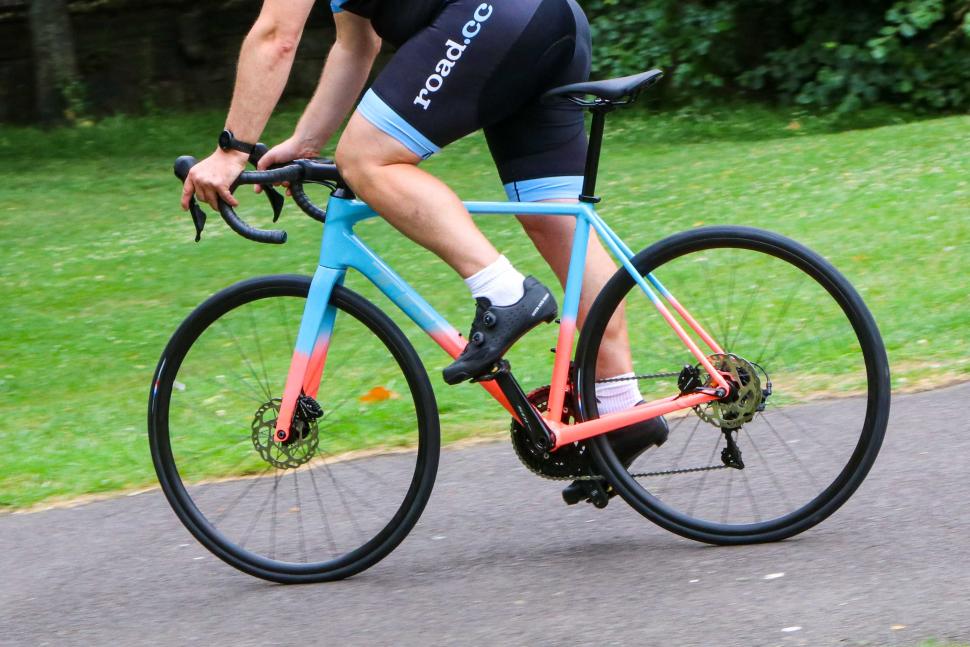
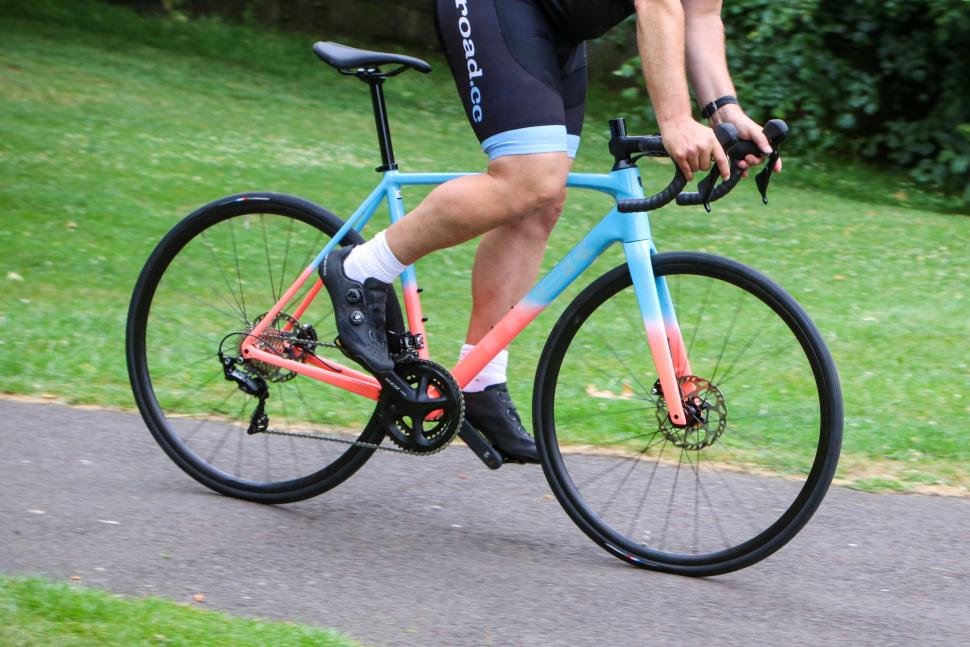
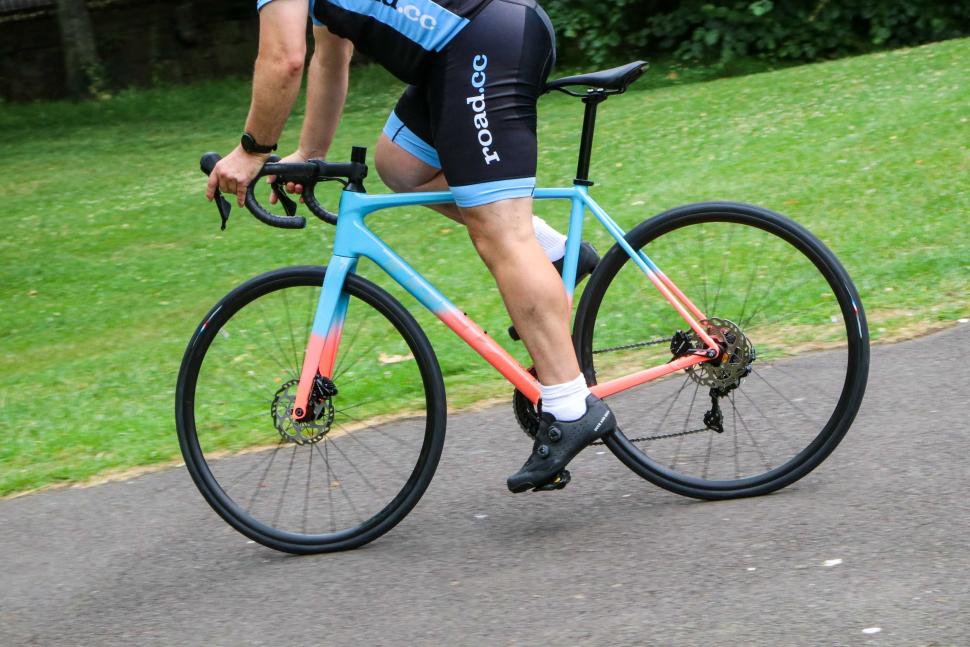
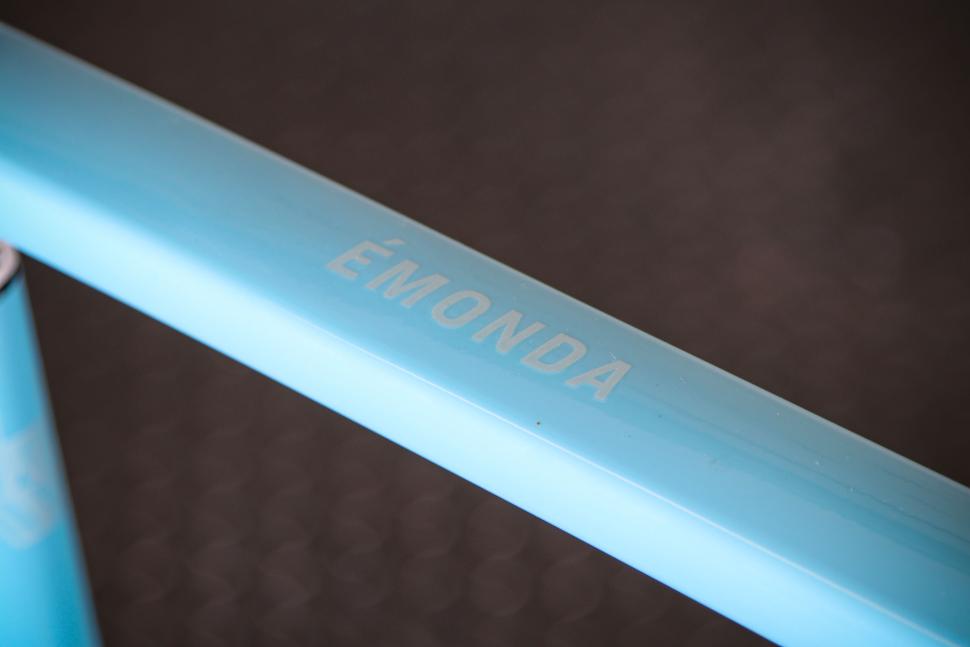
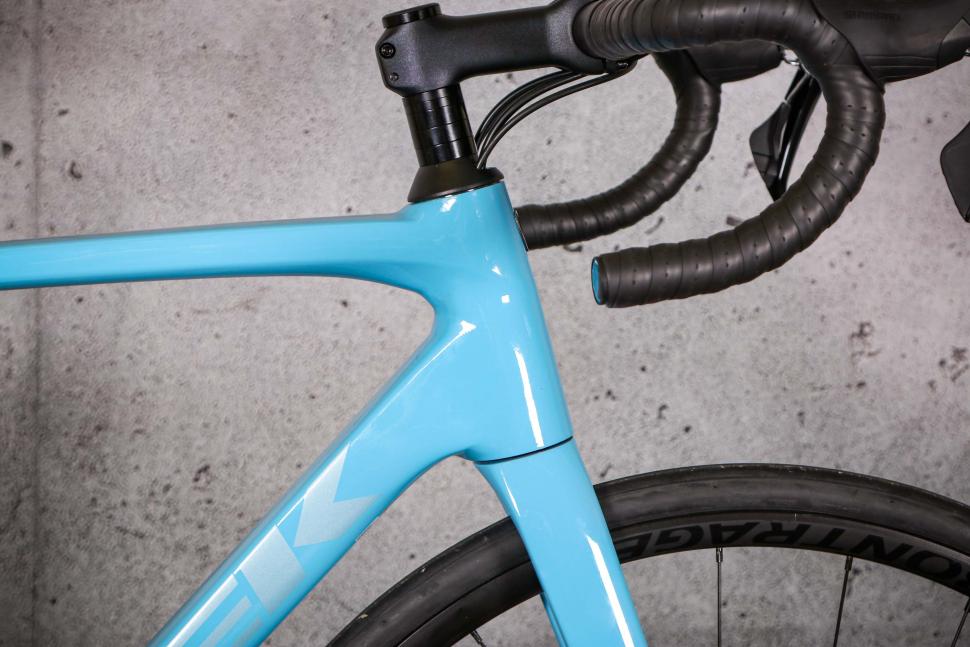
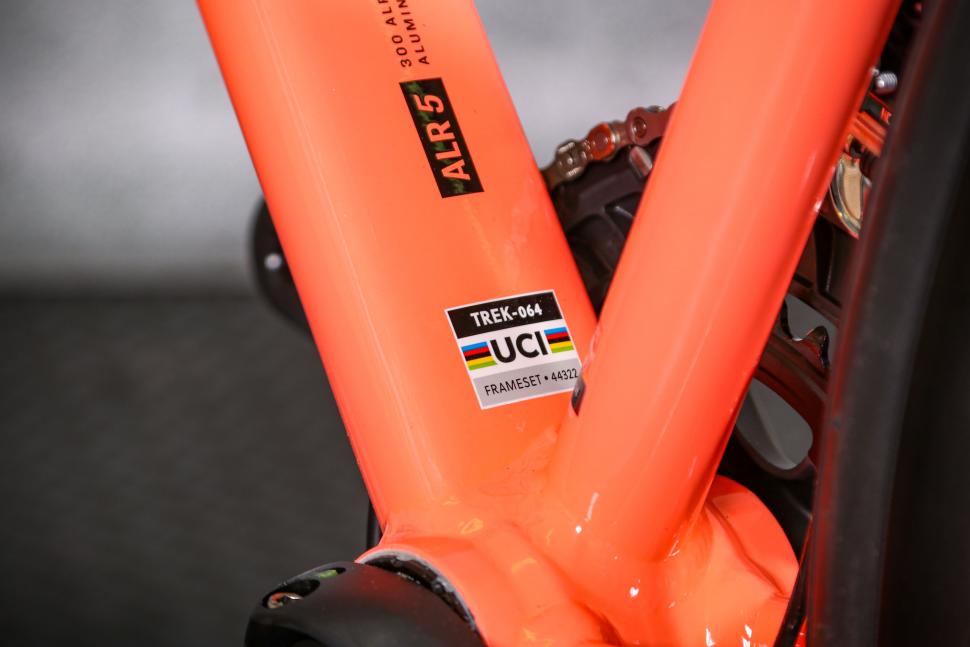
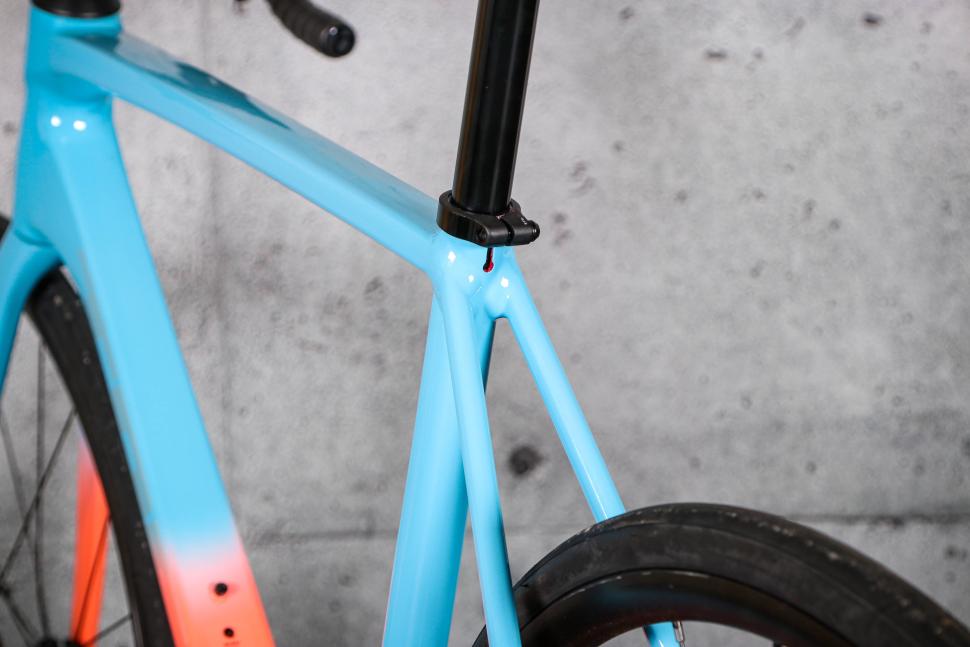
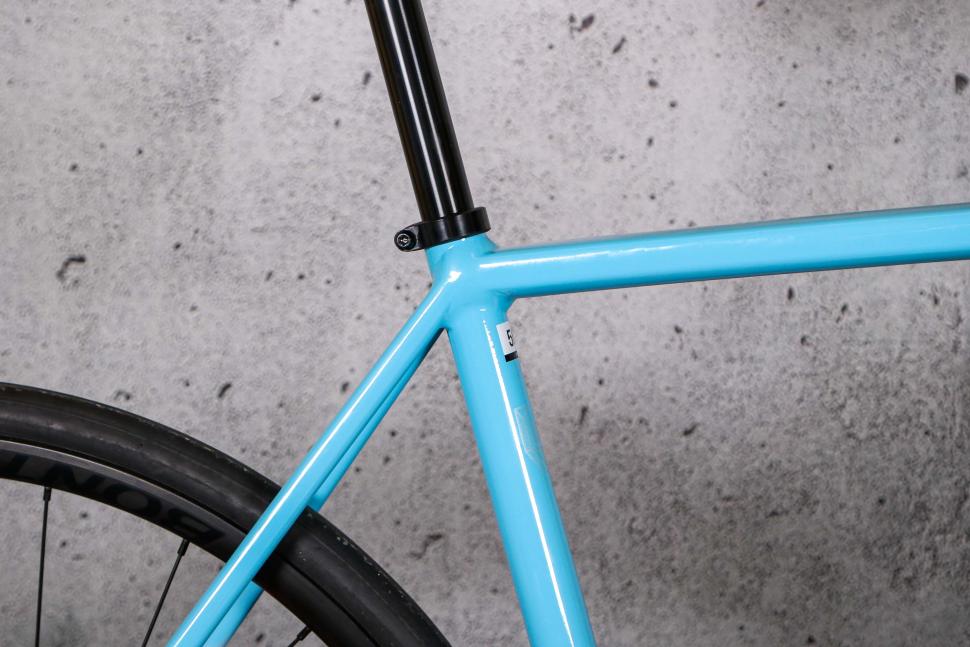
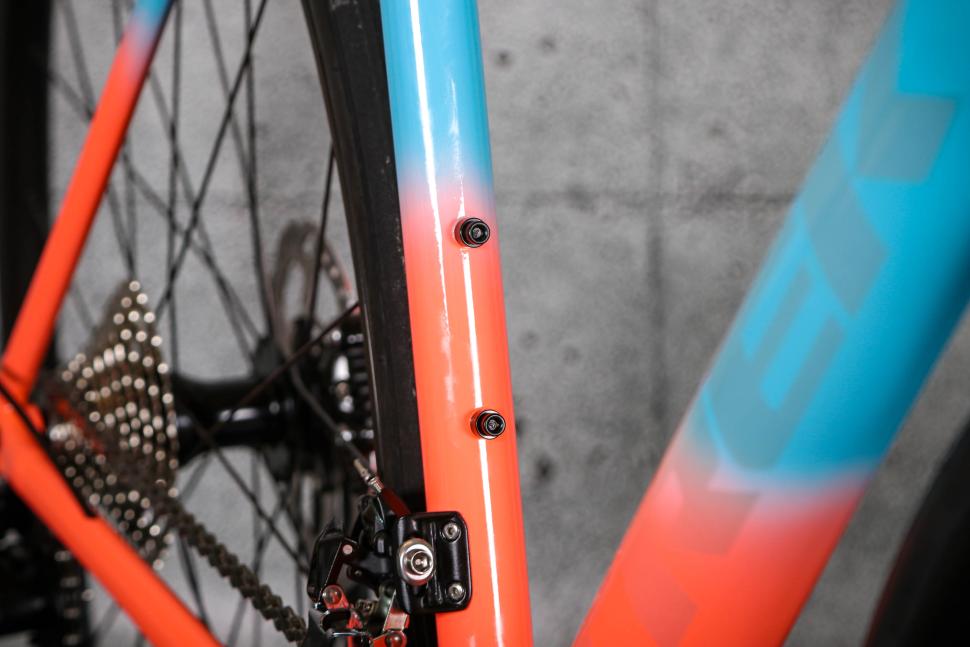
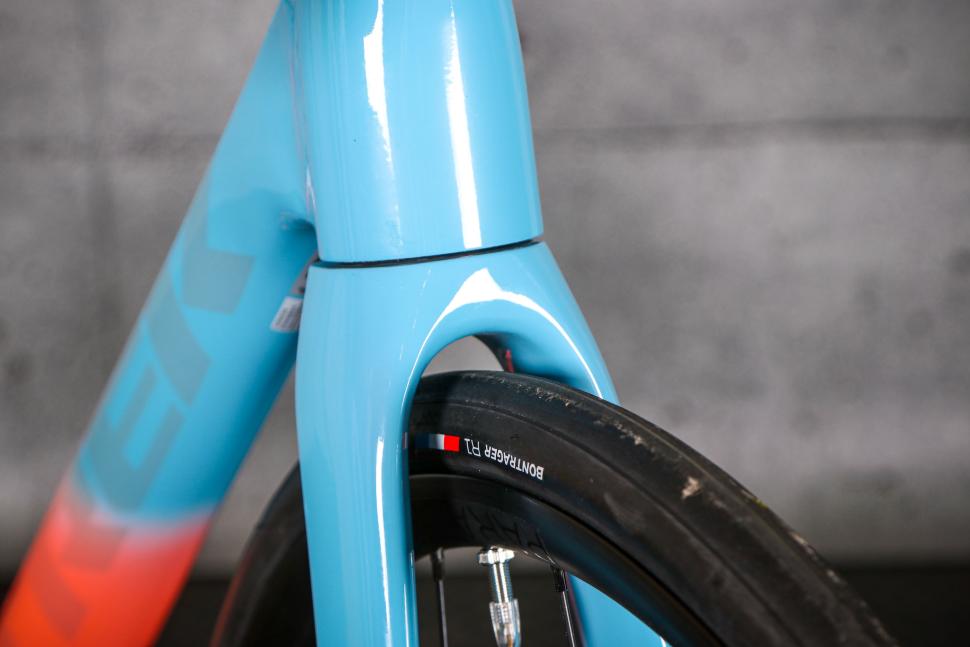
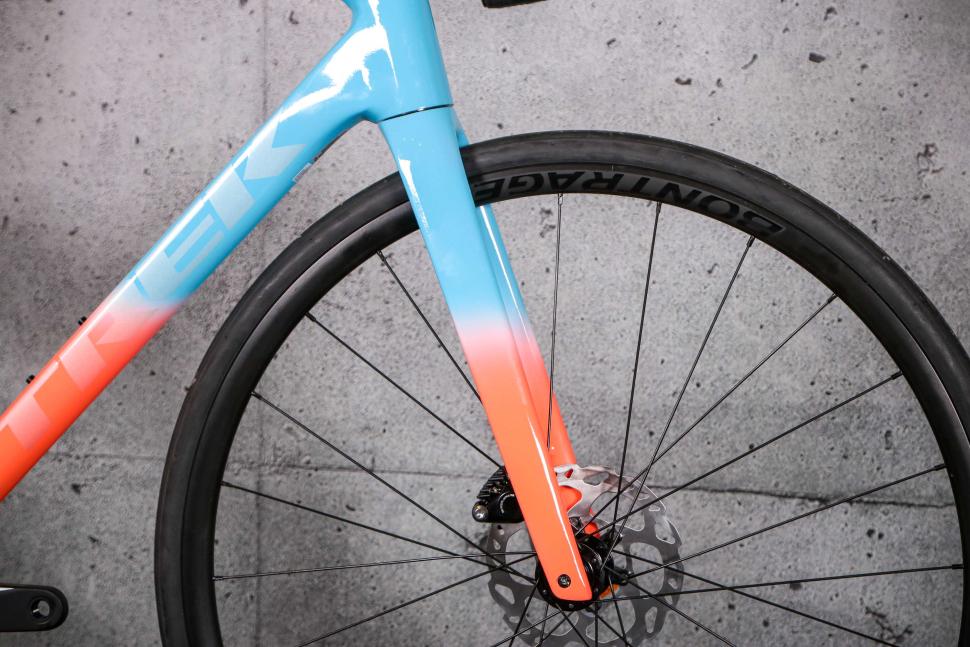
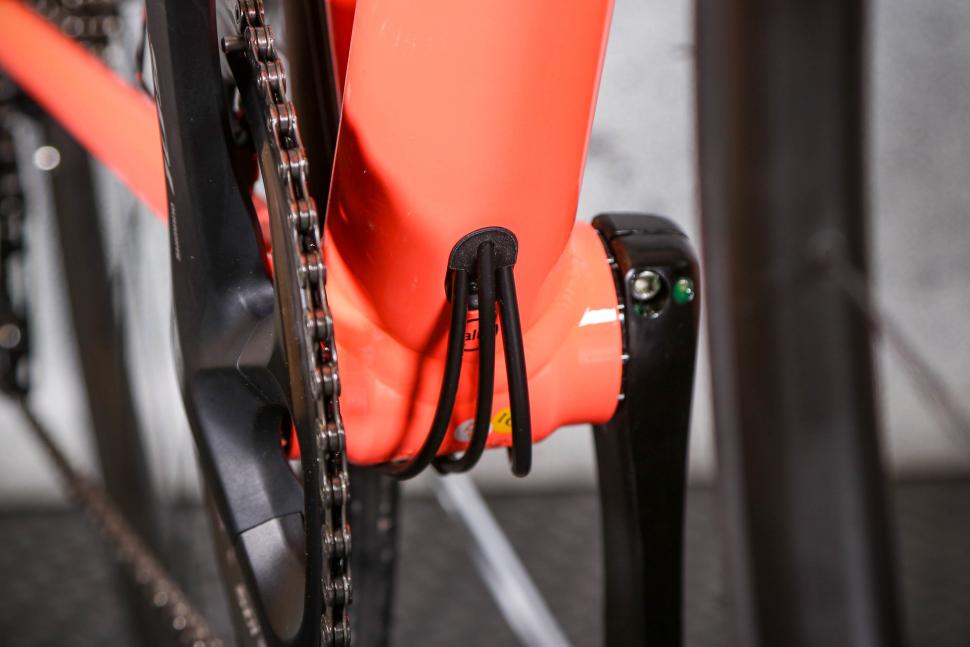









































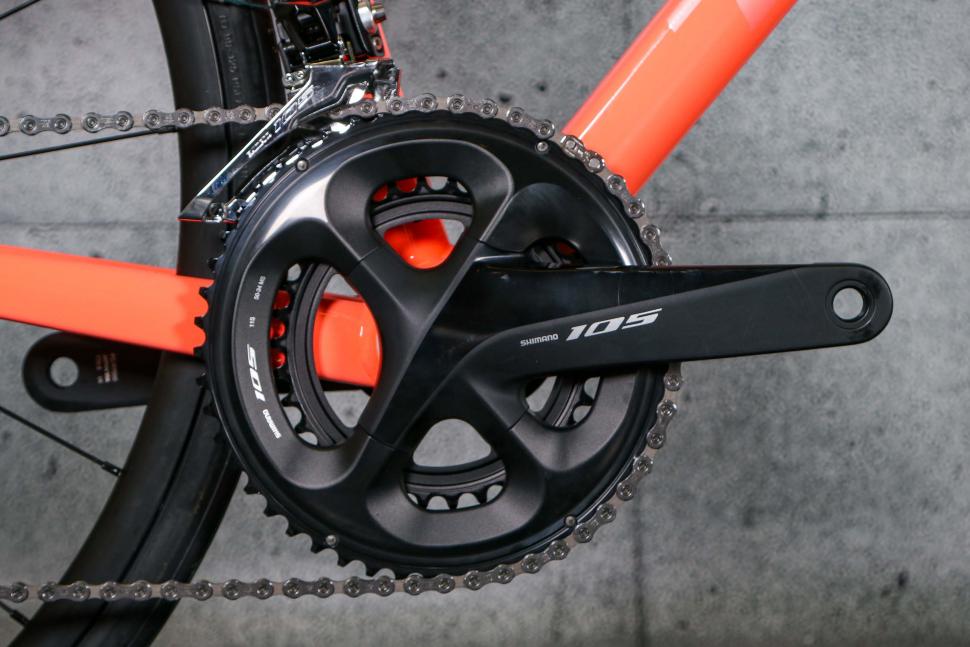
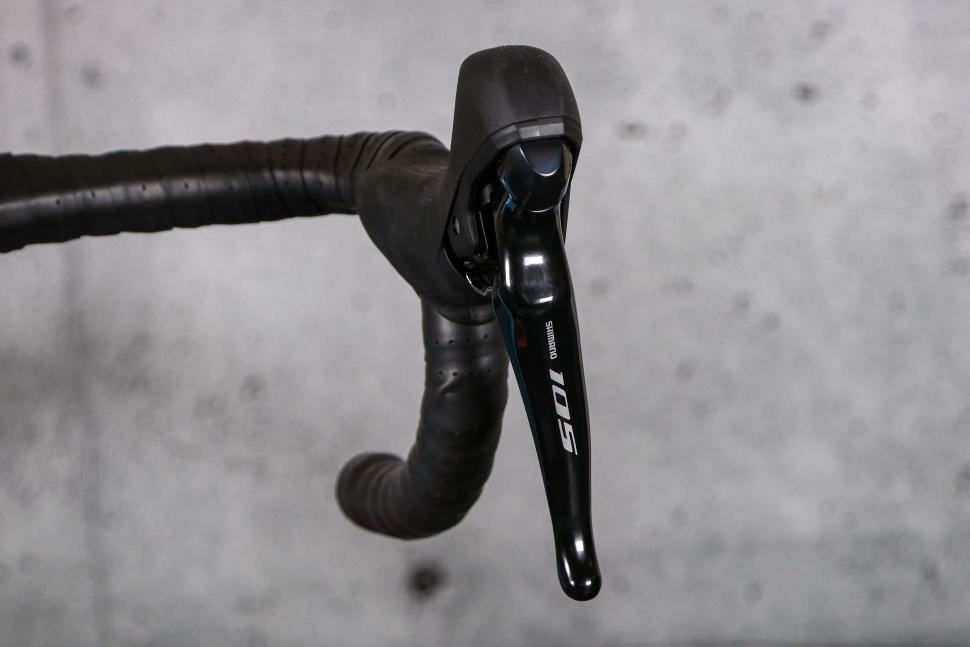
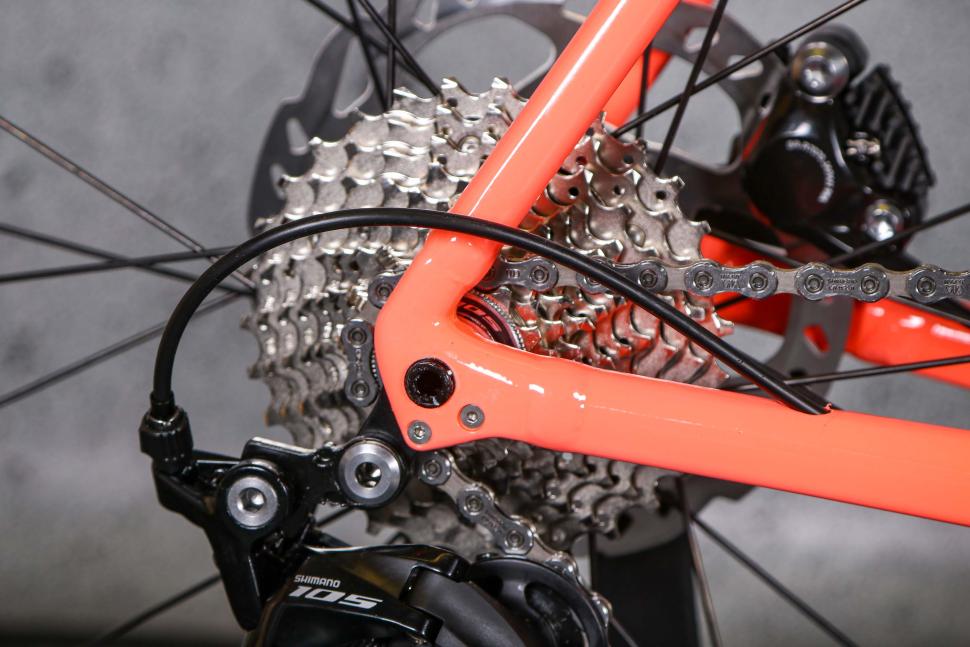
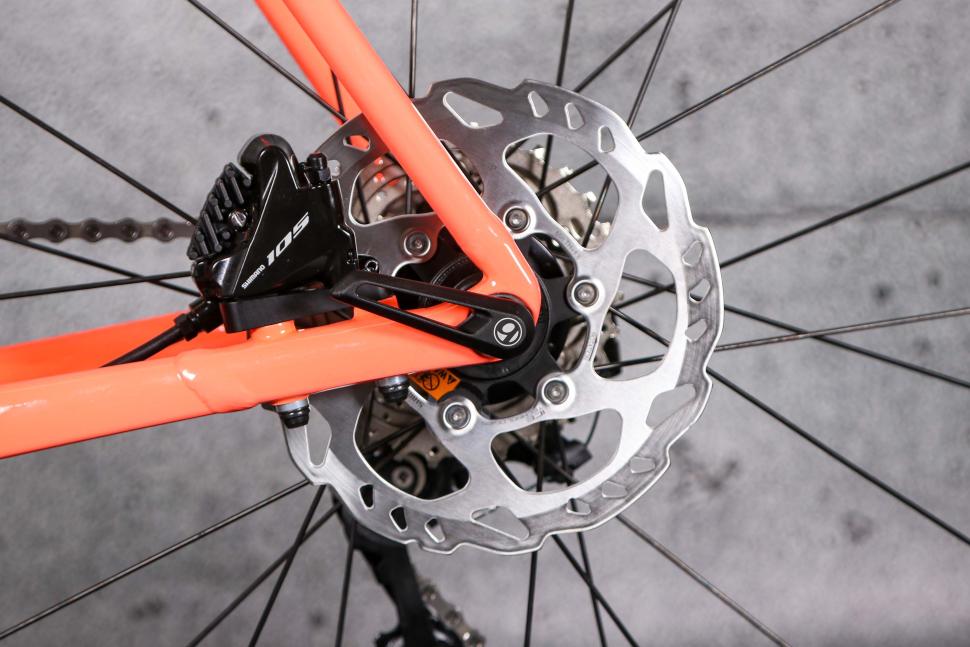
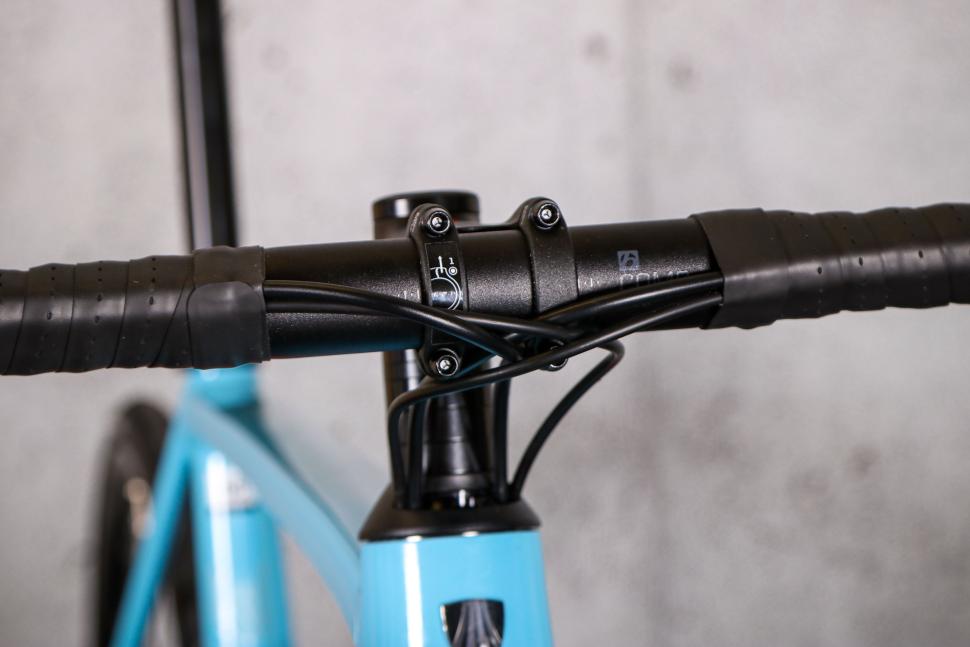
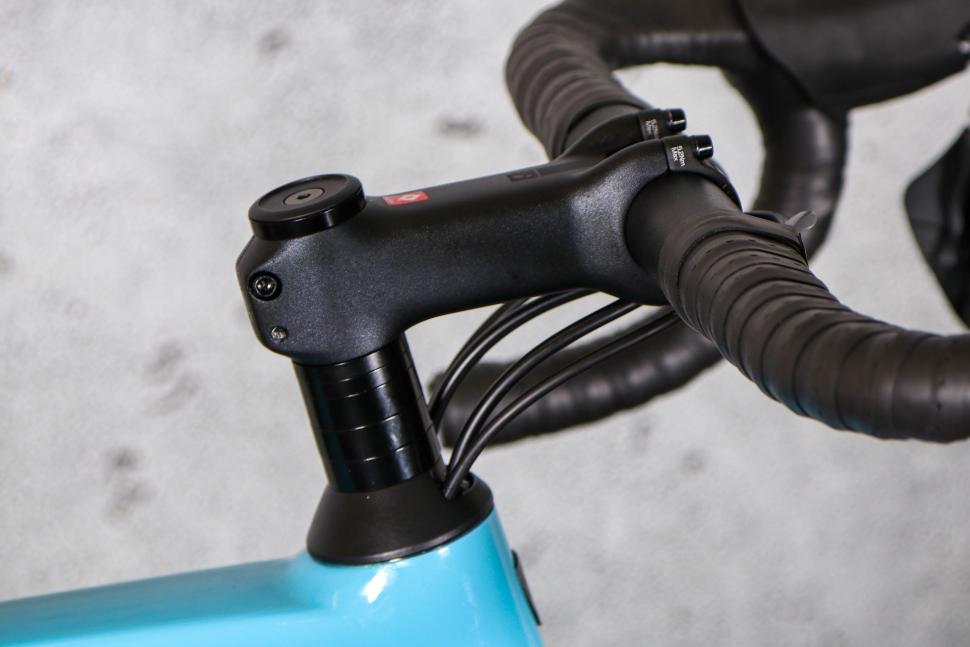
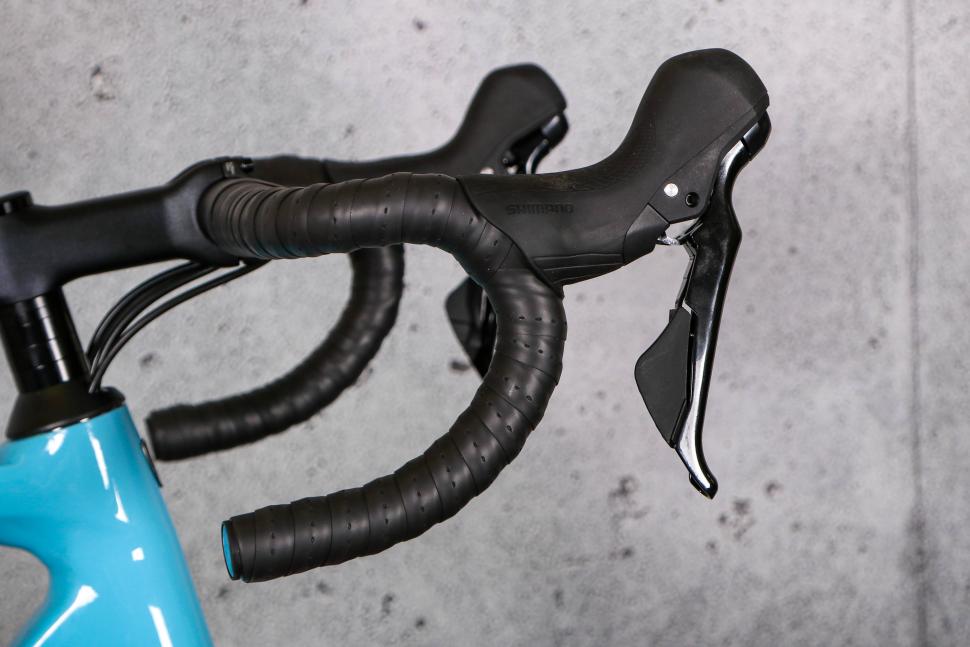
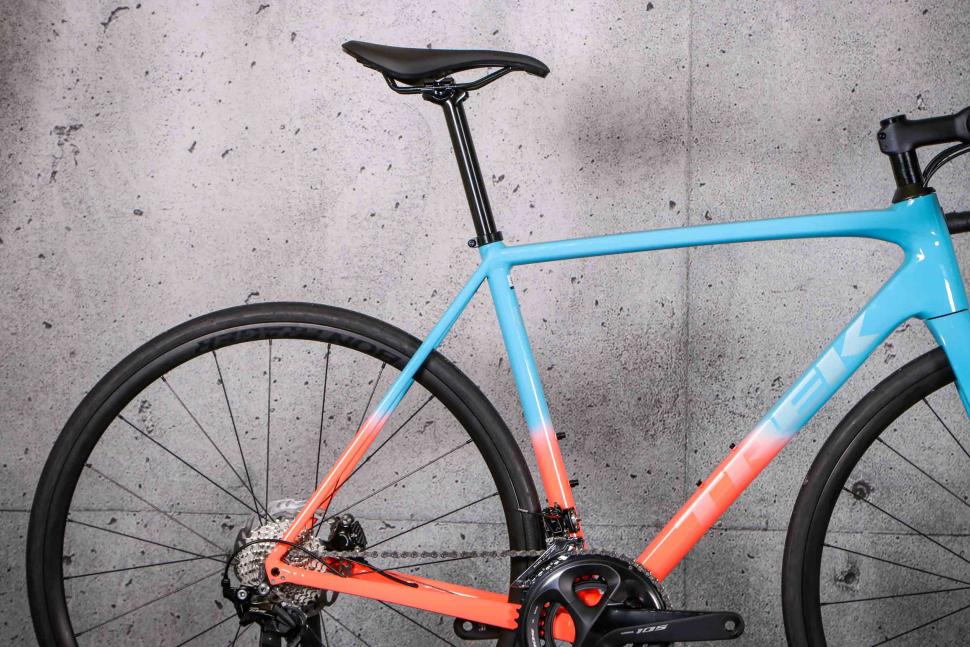
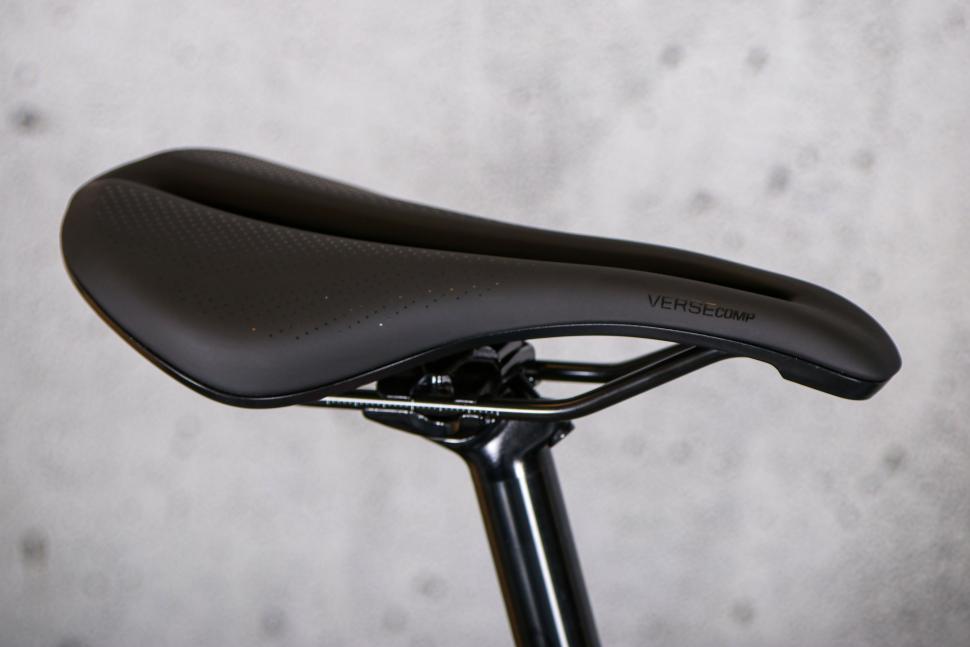
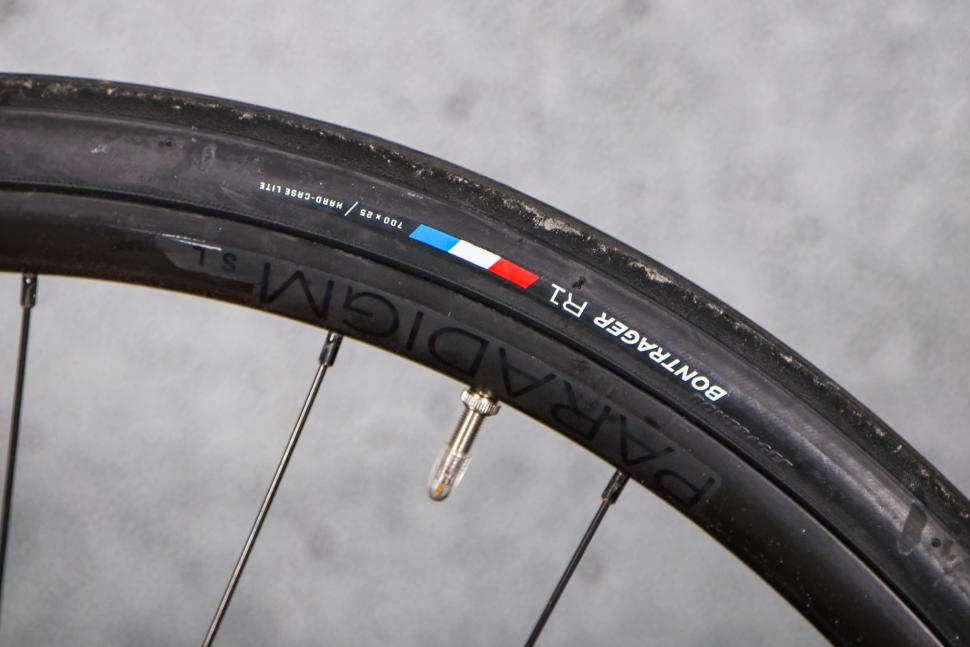
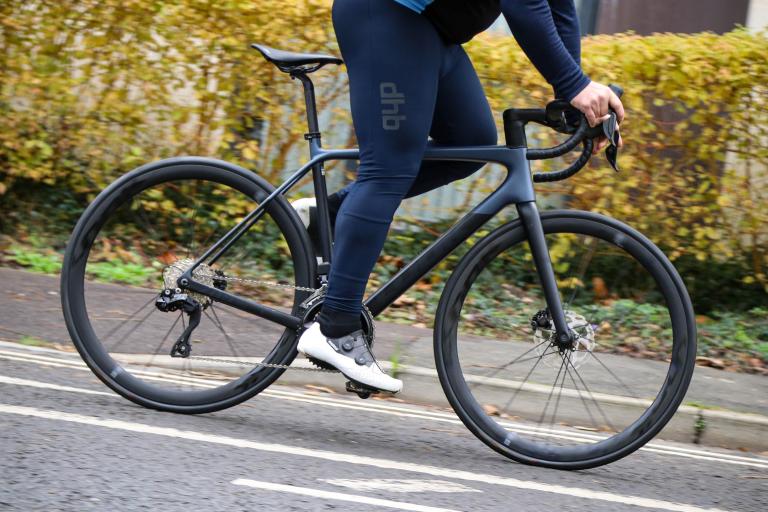
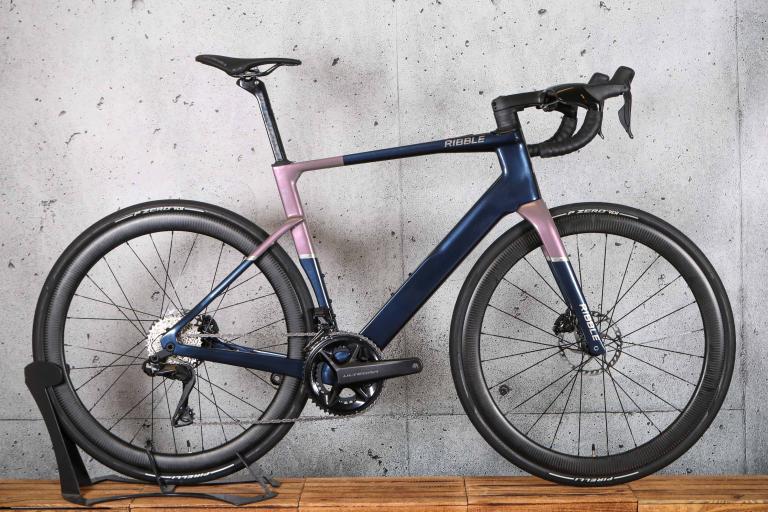
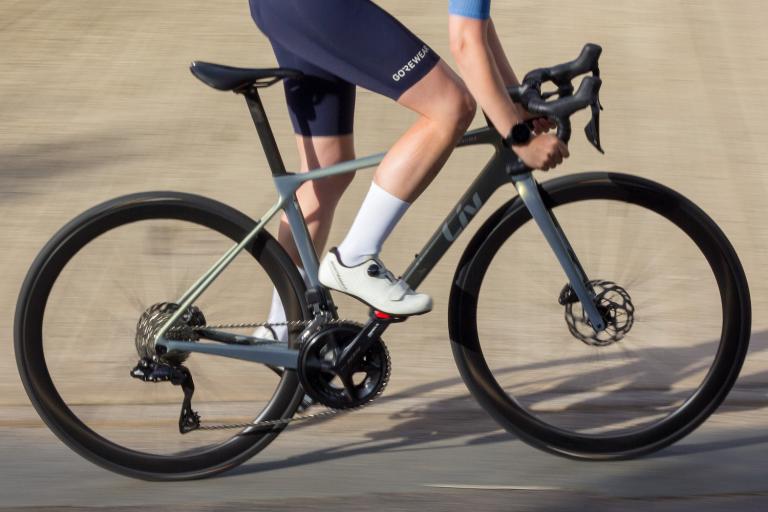
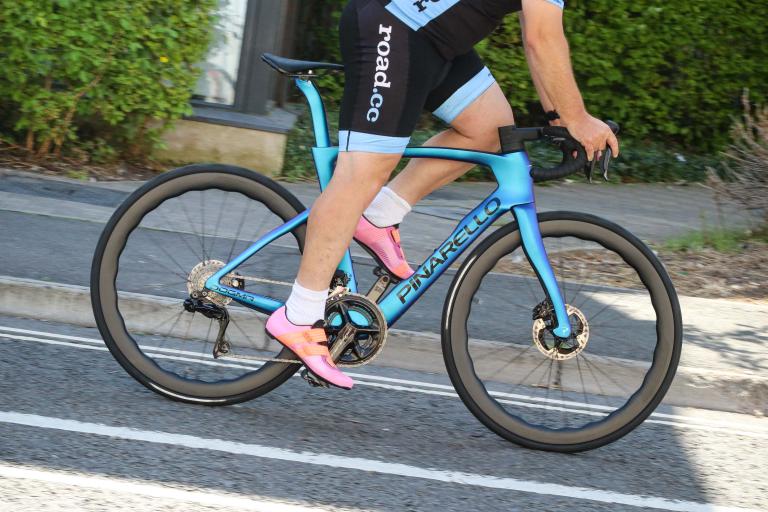
Add new comment
7 comments
>£2k for an aluminium frame?! In the same price bracket, actually cheaper, you can get a carbon frame for that money. Trek seems to be poor vfm really....
Or steel (if you want).
Having become quite inured to these prices, I was slightly shocked recently to see you can get a well-regarded steel-framed 105-equipped ride for £1000 less than this Trek. Not exactly the same sort of bike but - hydraulic brakes apart - you have to wonder where the price difference comes from.
www.cyclinguk.org/cycle-magazine/bike-test-cannondale-synapse-sora-and-s...
Coming back to cycling after a number of years off I was shocked at the cost of bikes and in the end plumped for a £500 Triban RC500 from Decathlon, which I'm sure a lot of folks will turn their noses up at, but it's a great bike and does everything I need. But now I'm looking at a better bike the vfm range is incredible. Have to say Ribbles range is looking very attractive.....
I tried one in Decathlon couple of weeks ago and thought it was a great bike especially for the price, now 600 quid I think.
Anyone who does that is a fool.
https://road.cc/content/review/decathlon-triban-rc-500-disc-road-bike-25...
Your starting point is that aluminium is necessarily inferior to carbon. I'm not sure that's always true.
While this seems expensive for a 105 11-speed bike, it's a Trek and they don't sell bikes cheaply. The ALR 4 with Tiagra is currently £1,575 (reduced from £1,750). That's quite a difference for one extra cog on the cassette. The frameset is £1,150. A Specialized Allez Sprint frameset is £1,800.
These brands spend a lot on marketing, sponsorship and R&D and that money has to come from somewhere. I wonder how the Trek ALR compares to a Giant Contend SL, Cannondale Synapse or Ribble Endurance AL.
If you compare it with the £4,500 Cervelo Soloist reviewed last week which has a low-spec wheelset, so you're looking at £800 or more on top to get something it deserves (no-one buying a Soloist will want those stock wheels). I'd suggest that is a far bigger rip-off.
There is talk of an oversupply of some models so there may be discounts if you shop around.
No mention of that colour scheme!